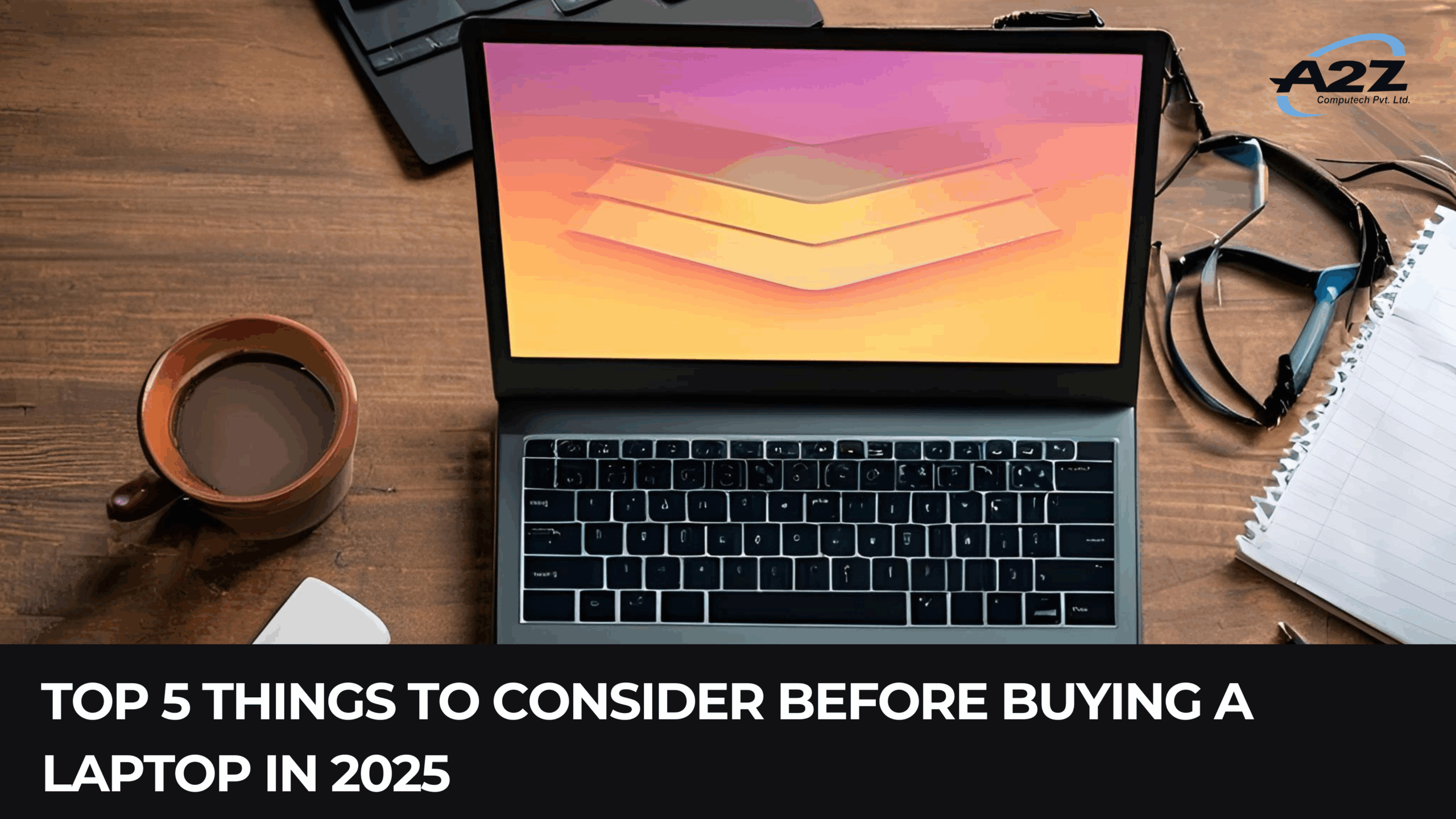Choosing the perfect laptop in 2025 can be overwhelming with so many brands, specs, and models available. Whether you’re a student, working professional, gamer, or content creator, focusing on the right features will help you get the best value for your money. To simplify your search, here are the top 5 things to consider before buying a laptop in 2025.
1. Purpose: Define How You’ll Use Your Laptop
Before diving into specs and prices, ask yourself: What will I use my laptop for? This helps narrow down your options and ensures you don’t overspend on features you don’t need.
- Basic Use (Browsing, Emails, Streaming): A budget laptop with Intel Core i3 or AMD Ryzen 3, 4GB to 8GB RAM, and 256GB SSD will work well.
- Work & Productivity (Office, Coding, Designing): Aim for Intel i5 or Ryzen 5 processors, 8GB or more RAM, and at least 512GB SSD storage.
- Gaming & Video Editing: You’ll need a powerful setup with Intel i7 or Ryzen 7 CPUs, dedicated NVIDIA or AMD GPUs, 16GB+ RAM, and high refresh rate displays.
2. Processor (CPU): The Brain of Your Laptop
The processor determines your laptop’s speed and multitasking ability. In 2025, popular options include:
- Intel Core: i3, i5, i7, i9 (13th or 14th Gen)
- AMD Ryzen: 3, 5, 7, 9 (7000 series and above)
If you often use heavy applications or multitask frequently, invest in a newer, more powerful CPU for smooth performance.
Pro Tip: Check processor benchmarks on sites like PassMark or UserBenchmark before buying.
3. RAM and Storage: Speed and Space
These components majorly impact performance:
- RAM:
- 4GB for very basic tasks
- 8GB ideal for students, office work, multitasking
- 16GB+ recommended for gamers, editors, developers
- Storage:
- SSD (Solid State Drive) is faster and more reliable
- HDD (Hard Disk Drive) offers more storage but slower speed
- Hybrid (SSD + HDD) combines speed and capacity
A 512GB SSD is a great balance for most users.
4. Battery Life: Stay Powered On the Go
Battery life is crucial for those working or studying on the move.
Look for laptops that offer:
- 6 to 10+ hours battery life
- Fast charging support
- USB-C charging ports
- Power-saving features in hardware/software
Note: Gaming laptops with powerful GPUs may drain battery faster.
5. Display and Build Quality: Experience Matters
Your screen is where you spend most of your time, so choose wisely:
- Screen Size: 13″ to 15.6″ for a good balance of portability and workspace
- Resolution: Full HD (1920×1080) standard; creatives might prefer 2K or 4K
- Panel Type: IPS panels offer better colors and wider viewing angles
- Build Quality: Look for sturdy materials, backlit keyboards, solid hinges, and lightweight design if portability matters
- Bonus Tips
- Ports & Connectivity: Ensure enough USB ports, HDMI, SD card reader, Wi-Fi 6, Bluetooth 5.2+
- Operating System: Windows, macOS, or Linux — pick what suits you best
- Brand & Support: Trusted brands like HP, Dell, Lenovo, ASUS, or Apple offer better warranty and service
Final Thoughts
Buying a laptop in 2025 doesn’t have to be confusing. Focus on your primary needs, prioritize the specs that matter most, and select a model within your budget. Thanks to rapid tech advancements, even mid-range laptops now deliver excellent performance.
For expert laptop recommendations, honest reviews, and the latest deals in India, visit A2Z ComuTech — your trusted source for tech advice and the best laptop buying guides in 2025.
Quick Checklist Before You Buy
- Identify your primary purpose
- Choose the right CPU and sufficient RAM
- Prefer SSD storage over HDD
- Check battery life and portability
- Evaluate screen quality and brand reputation

